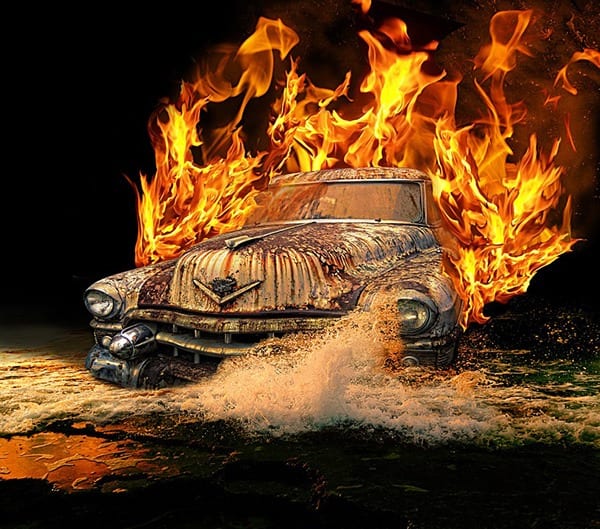
Editor: Vladimir Bajic | Tactical Investor
1000 cars set alight in France on New Year’s Eve
Updated July 2023
The interior ministry reports the incidents of cars being set alight on New Year’s Eve and the subsequent increase in arrests in France. According to the ministry, the number of vehicles set on fire rose from 935 the previous year to 1,031, while arrests increased from 456 to 510.
In addition to the car burnings, there were also acts of violence during New Year’s Eve celebrations in the Paris suburb of Champigny-sur-Marne. A large group of individuals attacked two police officers at a party. French President Emmanuel Macron condemned the attack on the police officers as a “cowardly and criminal lynching” on Twitter. He assured that those responsible would be identified and apprehended.
It’s important to note that incidents like these are not representative of the entire population of the country. They are unfortunate events that occur in certain areas during specific periods. Authorities take these incidents seriously and work to maintain public safety and hold those responsible accountable.
1000 cars set alight in France on New Year’s Eve, so what’s next
The incidents of cars being set alight on New Year’s Eve in France have been a recurring occurrence, particularly in specific neighbourhoods. The tradition reportedly originated in the 1990s in the poorer neighbourhoods of Strasbourg in the eastern part of the country. Over the years, it has spread to other areas, and some individuals engage in this activity as a form of protest, expression, or even as a means of entertainment.
While the majority of people in France celebrate New Year’s Eve peacefully, the incidents of car burnings are a cause for concern. The French government takes measures to address these incidents, such as deploying a significant number of security and emergency forces—around 140,000 personnel—across the country to maintain public order and respond to potential disturbances.
It’s worth noting that car burnings are not limited to New Year’s Eve and can occur on other occasions. The reasons behind these acts can vary, including social unrest, dissatisfaction with government policies, or simply as acts of vandalism.
The French government, law enforcement agencies, and local authorities continue to work on preventing and addressing these incidents through increased security measures, public awareness campaigns, and law enforcement efforts. Full Story
Fiery Rampage: Annual Arson Tradition Sees 945 Cars Torched on France’s New Year’s Eve
Vandals in France set ablaze 945 parked cars during a disturbing annual “tradition” of arson on New Year’s Eve, raising concerns about public safety and sparking a heated debate over the government’s handling of the situation. The figures, released by the French interior ministry, revealed a 17% increase in car burnings compared to the previous year.
Despite the alarming numbers, the interior ministry insisted that New Year’s Eve transpired without any significant incidents, downplaying the severity of the situation. They stated that there were only “a few troubles with public order,” emphasizing the relatively peaceful nature of the celebrations.
Throughout the night, law enforcement authorities apprehended 454 individuals, with 301 of them being taken into custody. However, it was revealed that the initial figures released by the ministry were significantly lower, as they only accounted for the cars “set on fire” and not those entirely consumed by the ensuing flames. By providing the lower figure of 650 vehicles torched, the ministry aimed to depict the phenomenon as contained, suggesting a mere 48-car increase from the previous year.
Critics, including the far-right Front National, sharply criticized the government, accusing them of obscuring the true extent of the security challenges faced by the country. They denounced what they perceived as an “extremely hazy security record” and called for more robust measures to address the recurring issue of car burnings.
The annual wave of vehicle arsons has become a sinister tradition, reportedly originating in the 1990s in the poorer neighbourhoods of Strasbourg. While the majority of French citizens celebrate New Year’s Eve peacefully, car burnings continue to pose a significant challenge for authorities, who strive to maintain public safety and curb destructive acts through increased security measures and law enforcement efforts.










